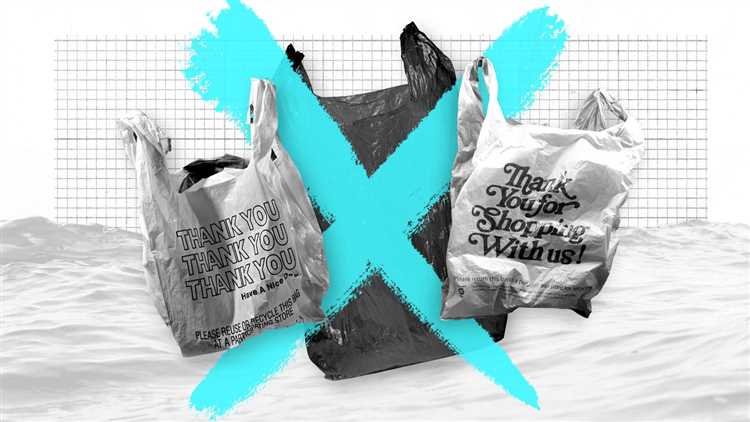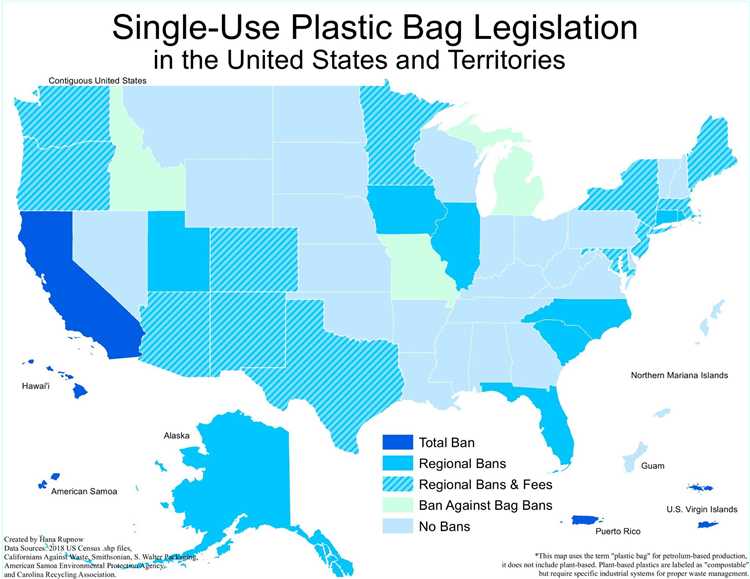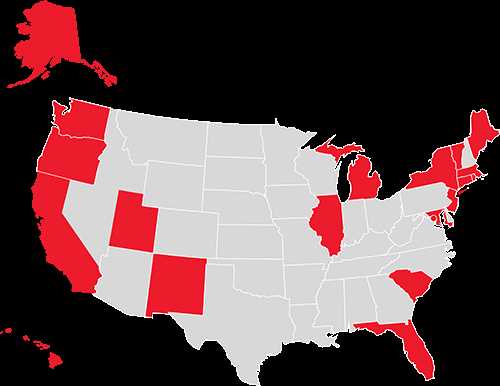In recent years, there has been a growing trend toward banning plastic bags in the United States. As concerns about environmental pollution and the impact of single-use plastics continue to rise, many states and municipalities have taken action to reduce the use of plastic bags. This article provides an overview of the plastic bag ban movement in the United States, including the reasons behind the bans, the impact on businesses and consumers, and the alternative solutions being adopted.
Plastic bags have long been a convenient and widely used packaging option for retailers, but their environmental impact has become a major concern. These bags do not biodegrade and can take hundreds of years to break down in landfills. They also pose a significant threat to wildlife, with animals often getting entangled in them or mistaking them for food. Additionally, plastic bags contribute to litter and can clog storm drains, leading to flooding and other environmental issues.
Recognizing these problems, many states and cities across the United States have implemented plastic bag bans or fees to discourage their use. These bans typically target single-use plastic bags at grocery stores, convenience stores, and other retail locations. Some bans also include other plastic products, such as straws and foam containers. The goal of these bans is to encourage the use of reusable bags and promote more sustainable alternatives.
The plastic bag ban movement has faced some resistance from businesses and consumers who argue that the bans are inconvenient or costly. Some retailers have expressed concerns about the impact on their bottom line, as providing alternative bags or charging fees for bags can increase their expenses. However, studies have shown that the bans can lead to a reduction in plastic bag usage and also encourage the adoption of reusable bags. In some cases, businesses have even reported increased customer loyalty and positive brand perception as a result of the bans.
- Environmental Impact of Plastic Bags and the Need for a Ban
- Implementation of Plastic Bag Bans in Different States
- California
- New York
- Hawaii
- Oregon
- Connecticut
- Alternatives to Plastic Bags and Their Benefits
- Challenges and Controversies Surrounding the Plastic Bag Ban
- Q&A:
- Why are plastic bags being banned in the United States?
- What are some alternatives to plastic bags?
- Are all cities in the United States implementing plastic bag bans?
- What are the advantages of plastic bag bans?
- Are there any disadvantages to plastic bag bans?
- What is the plastic bag ban?
Environmental Impact of Plastic Bags and the Need for a Ban

Plastic bags have become a major environmental concern due to their detrimental impact on the planet. They are made from non-renewable resources such as petroleum, which contributes to the depletion of fossil fuels. The production of plastic bags also releases large amounts of greenhouse gases, contributing to climate change.
Furthermore, plastic bags are not biodegradable and can take hundreds of years to break down in the environment. As a result, they accumulate in landfills and litter natural habitats, causing harm to wildlife. Marine animals often mistake plastic bags for food, leading to ingestion and potential death.
In addition to their impact on wildlife, plastic bags also contribute to water pollution. When they end up in rivers, lakes, and oceans, they can release toxic chemicals and microplastics, which can disrupt ecosystems and harm aquatic life.
Given the significant environmental impact of plastic bags, many countries and communities have implemented bans or imposed fees on their use. The aim of these measures is to reduce plastic waste and encourage the use of more sustainable alternatives, such as reusable bags. By implementing a ban or fee, it is hoped that individuals will be more conscious of their consumption habits and opt for eco-friendly options that have a lower environmental impact.
- Bans and fees on plastic bags have been successful in reducing their usage in various parts of the world.
- Many cities and counties in the United States have also implemented plastic bag regulations to address the environmental concerns associated with their use.
- It is important for individuals to be proactive in reducing their consumption of single-use plastic bags and opting for reusable alternatives.
In conclusion, the environmental impact of plastic bags is significant and necessitates a ban or fee to mitigate their use and encourage more sustainable practices. By reducing the consumption of plastic bags, we can help protect the environment and preserve natural resources for future generations.
Implementation of Plastic Bag Bans in Different States
Plastic bag bans have been gaining momentum in the United States, with a number of states taking action to reduce the use of single-use plastic bags. Here are some examples of how different states have implemented plastic bag bans:
California
California was the first state to implement a statewide ban on single-use plastic bags in 2014. The ban applies to large grocery stores, pharmacies, and convenience stores. Retailers are required to charge customers at least $0.10 for each paper bag or reusable bag they provide.
New York
New York implemented a statewide ban on most single-use plastic bags in 2020, making it one of the most recent states to take action. The ban applies to most retailers, but it does not include restaurants or bags used for certain purposes, such as packaging meat or bulk items.
Hawaii
Hawaii has a county-by-county approach to plastic bag bans. Four counties in Hawaii have implemented bans on single-use plastic bags: Kauai, Maui, and Hawaii counties, and the city and county of Honolulu. Each county has its own specific regulations, such as exemptions for certain types of plastic bags or small retailers.
Oregon
In 2019, Oregon became the second state to implement a statewide ban on single-use plastic bags. The ban applies to retailers, including grocery stores, pharmacies, and convenience stores. Similar to California, retailers are required to charge customers at least $0.05 for each paper bag or reusable bag they provide.
Connecticut

Connecticut has not implemented a statewide ban on single-use plastic bags, but several municipalities have taken action on their own. Some cities, including Greenwich and Westport, have banned single-use plastic bags, while others have implemented fees for their use.
These are just a few examples of how plastic bag bans have been implemented in different states. The specific regulations and details may vary, but the overall goal is to reduce the use of single-use plastic bags and encourage the use of reusable alternatives.
Alternatives to Plastic Bags and Their Benefits
With the rise of plastic bag bans, it is important to explore alternative options that are eco-friendly and sustainable. Here are some popular alternatives to plastic bags and their benefits:
1. Reusable Cloth Bags:
Reusable cloth bags are made from materials like cotton, jute, or canvas, making them durable and long-lasting. They can be used multiple times and are biodegradable. By using cloth bags instead of plastic bags, individuals can significantly reduce their environmental impact.
2. Paper Bags:
Paper bags are another alternative to plastic bags. They are made from renewable resources and are easily recyclable. Paper bags can also biodegrade naturally, making them a more environmentally friendly choice.
3. Biodegradable Bags:
Biodegradable bags are made from materials that can break down naturally, such as cornstarch or vegetable oil. These bags are designed to degrade over time, reducing the amount of waste in landfills. They are a more sustainable option compared to traditional plastic bags.
4. Compostable Bags:
Compostable bags are made from organic materials that can be broken down through composting processes. These bags can provide nutrients to the soil and help enhance plant growth. Using compostable bags promotes a circular economy by reducing waste and supporting sustainable farming practices.
5. Tote Bags:
Tote bags, also known as shopping bags or carry bags, are a versatile alternative to plastic bags. They can be made from various materials such as cotton, canvas, or woven synthetic fibers. Tote bags are reusable, sturdy, and can carry a large number of items. Their durability makes them a cost-effective and sustainable choice.
By choosing alternatives to plastic bags, individuals can contribute to reducing plastic waste, conserving natural resources, and protecting the environment for future generations. Remember, small changes in our daily routines can have a significant impact on the world we live in.
Challenges and Controversies Surrounding the Plastic Bag Ban

The implementation of plastic bag bans in the United States has not been without its challenges and controversies. While the intention behind these bans is to reduce plastic waste and protect the environment, they have faced opposition from various groups and industries.
One of the main challenges is the resistance from plastic bag manufacturers. With the ban on single-use plastic bags, these manufacturers face a significant decrease in demand for their products. As a result, they argue that the ban will lead to job losses and economic downturns in the industry.
Another challenge is the issue of convenience for consumers. Plastic bags have long been the go-to option for carrying groceries and other items. The ban on plastic bags means that consumers have to find alternative options such as reusable bags or paper bags. Some argue that these alternatives are not as practical or convenient, especially for spontaneous shopping trips or carrying wet items.
There is also controversy surrounding the effectiveness of plastic bag bans in addressing the larger issue of plastic pollution. While banning plastic bags can help reduce waste in landfills and marine environments, critics argue that it only addresses a small portion of the overall problem. They argue that more comprehensive solutions, such as improving recycling infrastructure and reducing overall plastic consumption, are needed to make a significant impact.
Furthermore, there is debate over whether the ban disproportionately affects low-income communities. Critics argue that reusable bags can be expensive for those on limited budgets and that the ban may create additional financial burdens. However, proponents of the ban argue that it is a necessary step in protecting the environment, and efforts should be made to ensure that affordable alternatives are available.
Overall, the plastic bag ban has faced challenges and controversies from various angles. While the intention behind the ban is to reduce plastic waste, opponents raise concerns about economic impact, convenience, effectiveness, and potential disproportionate effects on certain communities. Finding a balance between these concerns and addressing the larger issue of plastic pollution remains a complex task for policymakers.
Q&A:
Why are plastic bags being banned in the United States?
Plastic bags are being banned in the United States primarily to reduce their negative impact on the environment. These bags are not biodegradable and can take hundreds of years to break down. They also contribute to pollution and can harm wildlife. By banning plastic bags, cities and states aim to encourage the use of reusable bags and promote sustainability.
What are some alternatives to plastic bags?
There are several alternatives to plastic bags that can be used instead. Reusable bags made from materials like cloth, canvas, or jute are becoming popular. Paper bags are also commonly used, although they have their own environmental impact. Some stores even incentivize customers to bring their own bags by offering discounts or rewards.
Are all cities in the United States implementing plastic bag bans?
No, not all cities in the United States are implementing plastic bag bans. The decision to ban plastic bags is typically made by individual cities and states. While many cities have implemented such bans, there are still some areas where plastic bags are commonly used. However, the trend towards banning plastic bags is growing and more cities are likely to follow in the future.
What are the advantages of plastic bag bans?
Plastic bag bans have several advantages. Firstly, they reduce the amount of plastic waste that ends up in landfills or as litter. This helps protect the environment and wildlife. Secondly, banning plastic bags encourages people to use reusable bags, which can be more durable and can carry more items. Lastly, the ban can also lead to a decrease in the production of plastic bags, which saves resources and reduces pollution from their manufacturing.
Are there any disadvantages to plastic bag bans?
While plastic bag bans have their advantages, there are also some disadvantages to consider. One of the main concerns is that banning plastic bags could lead to an increase in the use of other types of bags, such as paper bags, which have their own environmental impact. Additionally, some people argue that banning plastic bags can inconvenience shoppers who may forget to bring reusable bags or have difficulty carrying their items without the option of plastic bags.
What is the plastic bag ban?
The plastic bag ban is a regulation implemented by governments to reduce the consumption and distribution of single-use plastic bags, typically provided by stores and supermarkets.